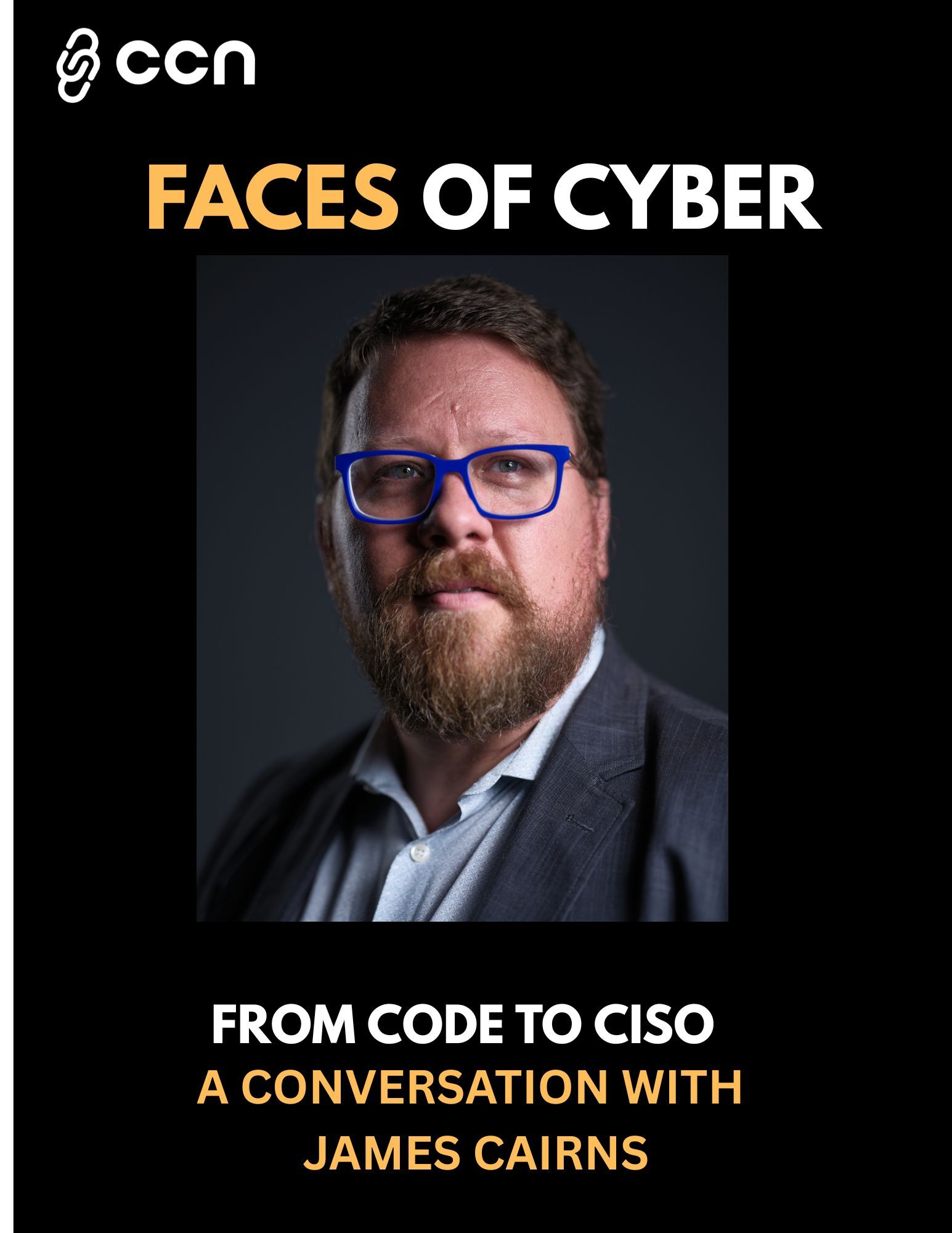From Code to CISO: How James Cairns Champions People as Cybersecurity’s First Line
Originally published in the Bow Valley College’s security leader argues Canada’s biggest cyber gap is not technology, it is talent.

A cybersecurity engineer’s struggle for a future in Canada
On paper, Rafael Arturo Ramirez is the kind of immigrant Canada says it needs.
He is a trilingual cybersecurity expert with nearly two decades of global experience. He has worked at giants like IBM, major corporations like Magna International, Manulife and TD Bank, redesigned infrastructure, pioneered mobile-era taxi tech before Uber existed, and retrained himself again in cybersecurity through Canadian institutions.
He’s raising two Canadian children. His wife has built a beauty business from nothing. They pay taxes, contribute to the community, and he actively strengthens Canada’s cybersecurity landscape. And yet, Rafael is on the brink of being forced to leave the country.
“I feel like I’m running a marathon, and every time I get close to the finish line, it’s moved 10 kilometres farther,” he says.
A Career Forged in Firewalls
Rafael’s journey began in Colombia, taking apart computers at age 8 and hacking into IRC chat rooms as a teen. “I was born an engineer,” he says, not with arrogance but with clarity.
By his 20s, he was already innovating, designing a call-based GPS dispatch system for taxis in a pre-smartphone world. A stint in Telco finance followed. Then IBM came calling. Over nearly 14 years, Rafael rose through the ranks, managing Blackberry deployments, network devices and leading agile transformations long before buzzwords took over corporate boardrooms.
But beneath the resume lies something harder to measure: a relentless spirit. “I’ve always been in ‘cyber,’ even when nobody called it that,” he says. Firewalls, intrusion prevention systems, networking layers, he’s done it all, often quietly, always thoroughly. In 2019, Rafael made the bold decision to uproot his life and come to Canada, seeking not just opportunity, but stability and a future for his family.
He retrained in cybersecurity at a Canadian college while finishing an MBA online from the U.S. He re-entered the workforce in Canada through Magna International, then TD Bank, then Manulife. It was hard, but he never expected it to be easy. What he didn’t expect was the wall.
The Points Trap
Canada’s immigration system is designed to be merit-based. The Express Entry program uses a Comprehensive Ranking System (CRS) that awards points for age, education, work experience, and language ability.
At 39, Rafael entered the country full of hope, planning to study, work and apply for permanent residency (PR). But the pandemic changed everything. Age became his enemy. “After 30, you start losing points. I’ve lost over 100 points because I got older,” he says.
His professional designation added another hurdle. Although he works in cybersecurity, his immigration paperwork was filed as “Information System Specialist,” a category now excluded from Canada’s new STEM-focused immigration stream.
“It’s the same role. Same job. Different box,” Rafael says. “But now I’m out.”
He tried everything, consulting 15 immigration lawyers, getting a closed work permit, chasing every shifting goalpost. “I’ve done everything Canada asked of me,” he says quietly. “And it’s still not enough.”
Building While Breaking
During our interview, Rafael spoke often of how much he loves the Canadian cybersecurity community and how much he feels he owes the people in that community for everything so far. Ask anyone in the cybersecurity community who Rafael is, and the response is consistent: he’s everywhere. Offering support. Sharing knowledge. Driving conversations. Mentoring newcomers. In a recent outreach from the Canadian Cybersecurity Network looking for cybersecurity stars in Canada for an upcoming media article, more than half the community recommended Rafael. And in a country that claims it needs cybersecurity leaders, Rafael now finds himself potentially disposable.
A Family in Limbo
The toll of immigration limbo isn’t just professional, it’s personal. Rafael’s wife, a makeup artist with limited opportunities back home, has built a thriving business in Canada, earning a significant amount of the family income. Her work isn’t easily transferable because her customer network is here.
“She’s built something beautiful. And now we might lose it all,” Rafael says. “Family-wise, it’s affecting us deeply. We’re happy, but the uncertainty, it’s always there.”
Their children, born here, are Canadian. Their dreams are Canadian. Their future is here. “I chose Canada for them,” Rafael says. “For the education. For the values. For the community. But now the system is telling me: You don’t belong.”
System Failure
Rafael is careful not to sound bitter. He still speaks about Canada with affection, pride, and even hope. “I love this country. I love our community. I want to build here.”
But he also sees a disconnect, a system designed for a different time. A time when 300.000 people applied and 280.000 got in. Today, he estimates, “one million people are competing for those same spots.”
He sees other paths to PR being used for people “who don’t even want to be here,” while contributors like him are left in bureaucratic purgatory. He doesn’t want special treatment. He wants fairness. “There’s a contradiction,” he says. “Canada says it needs cybersecurity talent. I’m here. I’ve proven myself. I have integrated into the culture. But the system values youth over value.”
A Simple Solution
Engineers think in systems. Rafael’s proposed fix is deceptively simple: use tax data.
“Pull CRA data. See who’s contributing to the economy. Who’s paying taxes. Who’s already working in sectors we need. That’s real. That’s measurable.”
He doesn’t want the system to be easier, just smarter. “Four years of experience in Canadian cybersecurity? That should matter. That’s how you build a future.”
And what about the age factor? “Do we really want young people who aren’t invested, or do we want mature families with children who are already building lives here?”
The Final Firewall
Rafael has done everything right. He retrained. He contributed. He paid his dues and more. But now, the only path left is mastering French to a high level, while raising kids, working and living under constant threat of removal. The irony is cruel: a cybersecurity expert blocked not by a firewall, but by a formula.
“I came to Canada to build something lasting. I still believe in that dream,” he says. Then he pauses. “But I’m running out of time.”
You can connect with Rafael via Linkedin.

Originally published in the Bow Valley College’s security leader argues Canada’s biggest cyber gap is not technology, it is talent.

Originally published in the

The Canadian Cybersecurity Network (CCN) has made its Canadian Cybersecurity Jobs platform completely free for companies hiring within Canada....